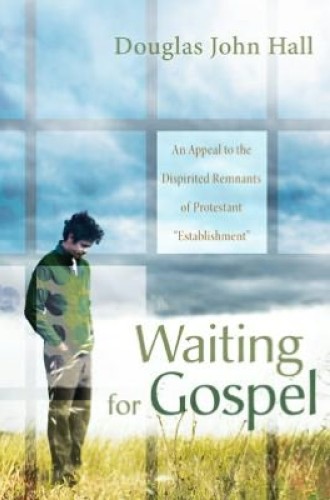Spirited remnant
Douglas Hall is likely the most respected, perceptive and influential North American theological interpreter from a Reformation perspective, especially with reference to Luther. He continues, moreover, to filter his thought through the work of his graduate school teachers at Union Seminary, Paul Tillich and Reinhold Niebuhr. But he is his own man and carries his inquiry toward the demise of Christendom, and thus well beyond the work of his teachers. This book of 13 essays witnesses to Hall’s rigorous, uncompromising engagement with our theological crisis into his old age.
We do well to parse his subtitle carefully. Waiting for Gospel is a reflection on the disestablishment of establishment Protestantism, of which Hall counts himself among the remnants. He recognizes that many cardholders in that establishment are now dispirited because they bet too much on the establishment assumptions of prosperity, entitlement and influence. They are humbled by the loss of that status and unable to think about how to be church in altered circumstances.
Hall has good reason to notice disestablishment. In his home province of Quebec he has watched the downfall of the Roman Catholic hegemony almost overnight, as the church lost credibility because of scandal and disengagement:






